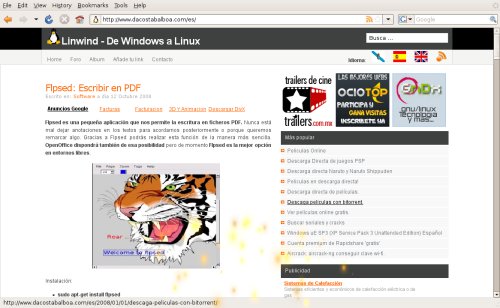
ChromiumĬhromium is the open-sourced version of Chrome. Midori is a fast browser that also runs in embedded computers and that is ideal for machines with high CPU usage.ĭid you ever hear of The Permatab web browser? Find out what it is exactly.
#GNU ICECAT BROWSER. FREE#
MidoriĪ free lightweight browser for Linux distributions based in Electron ( as opposed to the mainstream browsers that use WebKit). Created by the Mozilla Foundation, it uses Gecko as the rendering engine. Mozilla Firefox is a well-known browser so it won't require much explanation. It integrates with most Linux desktop environments, comes with an RSS reader, and promises us privacy and speed. It's a free and open-source project under the GPLv3 license. QupzillaĪ lightweight browser developed mainly by David Rosca using C++. Tabs management is fully customizable too, providing us much more flexibility in this aspect.Īre you using Ubuntu? Then you should be reading about the best web browsers for Ubuntu. It puts a special emphasis on privacy and security and has an active community around it. It's fully customizable and provides us with the option to choose what we want and what we don't. VivaldiĪ great evergreen web browser for Linux. Safe, secure, up-to-date, and all we would expect from a mainstream web browser. We all know Chrome, so there's little to say about the mega-popular Google browser. It contains a spy block and fingerprint protection. It focuses on privacy and is considered the GNU version of Firefox.
#GNU ICECAT BROWSER. ANDROID#
GNU IceCatĪlso known as GNU IceWeasel, GNU IceCat is a web browser for Linux but also available for macOS, Windows, and Android operative systems. Min browser allows you to focus on what matters without distractions and to keep things organized. Min – A Fast, Minimal BrowserĪs its own names hints, it's a Linux browser focused on minimalism. It supports multi-layered encryption so your data is as secure as possible. TorĪ modern-looking browser for Linux focused on privacy and blocking any kind of trackers. It uses an ad-blocker by default and supports all basic features you would expect from a browser. Falkon BrowserĪ KDE browser based on QtWebEngine rendering engine that was created in 2010 for educational purposes only and that kept on evolving and improving to become a quite decent browser with plenty of features. It's based on Webkit and puts special emphasis on keeping a minimalistic and simple user interface. Epiphany BrowserĮpiphany is a browser for the GNOME desktop and elementary OS. It supports Chrome, Firefox, and Opera extensions, which is quite amazing! It comes with private tabs support, limited data collection and promises a fast and private experience. WaterfoxĪ Linux Firefox-based web browser that is also available for Windows, Mac, and Android. And contains some advanced features such as a crypto wallet, crypto rewards, and advanced security features. From ads to cookies, malware, cross-site trackers, etc. Related article: Top Open Source Web Browsers: alternatives Like many other modern browsers, Brave sells us privacy and speed as one of their main features. It has been out there for quite a while (since 1995). Opera is a speed-focused and distraction-free browser that also provides Adblocking and privacy features. Opera is quite a well-known browser and it's available for Windows, Mac, Android, iOS, and Linux operating systems. Here's a list of the best Linux web browsers: 1.

3 in SID => clear manpower problem.There are multiple web browsers for the different Linux distributions. Now, if Icecat is not in the Debian repositories, it is may be simply because Debian is looking for manpower !!Įven Thunderbird should currently be release 52. You can be sure that nobody would have the crazy idea to look for a "pure" and trusted Debian package on a OpenSuse server ( may be few people visiting this forum, and that's all).ġ - Ubuntu: packages not avalaible in Ubuntu repositories are proposed in "PPA" (Personal Package Archives)Ģ - Debian packages => only one place: Debian repositories, and nowhere else => Dont Break Debian However, the question is: where to put your files ? of course you can make specific packages for your Ubuntu and Debian systems, if you have a lot of free time. Code: Select all dpkg -i -simulate my_scary_bĪnd analyze the output.


 0 kommentar(er)
0 kommentar(er)
